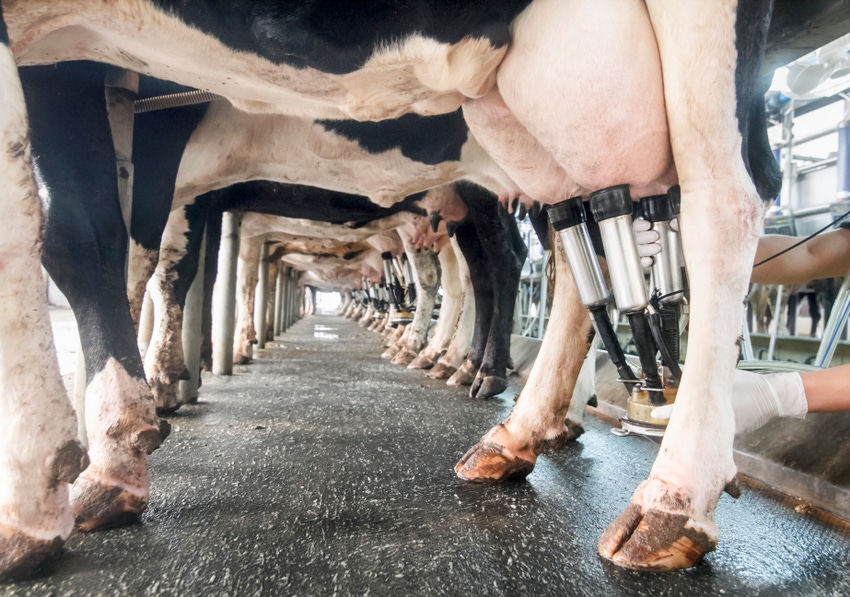Online resource provides assessment of various teat health scenarios.
October 6, 2020

Teat disinfection plays a key role in the National Mastitis Council (NMC) mastitis control plan, so to help dairy producers and their advisers implement the most science-based teat disinfection protocols, NMC teat health committee members have updated the organization’s "Post-milking Teat Disinfection Fact Sheet."
This free resource is available at http://bit.ly/TeatDisinfectionNMC.
NMC said the fact sheet addresses various types of post-milking teat disinfectants, including those used for different seasons. Always thoroughly review manufacturer label claims and directions for mixing, use and storage prior to deciding if a product is right for a dairy farm. The fact sheet guides users with teat dip application, handling, storage, use and methods for protecting efficacy. This NMC resource also discusses teat dip cups, sprays and automated milking systems.
Why is post teat disinfection so important? The rate of new intramammary infections can be reduced 70% or more by disinfecting all teats of all cows with an effective product immediately after every milking, compared with no disinfection, NMC said. Teat disinfection does not affect existing mammary gland infections, but it may reduce colonization of the teat end by mastitis pathogens and thus reduce the chance of new intramammary infections, the organization added.
NMC leaders remind dairy producers that good teat disinfectants have efficacy against the major mastitis pathogens, are economical, easy to apply and help maintain or promote good skin condition. Only use products that are registered or licensed with the appropriate regulatory authority in your jurisdiction. For example, regulatory authorities include the U.S. Food & Drug Administration, Veterinary Drugs Directorate of Health Canada and European Medicines Evaluation Agency.
NMC pointed out that in the U.S., FDA regulates teat disinfectants as over-the-counter drugs and does not require proof of effectiveness. However, in Canada, teat disinfection products must complete a full submission and approval process for veterinary drugs. Dairy producers should request information from the manufacturer or supplier on the registration or licensing and results of controlled research studies showing efficacy, NMC said.
NMC is a professional organization devoted to reducing mastitis and enhancing milk quality. NMC promotes research and provides information to the dairy industry on udder health, milking management, milk quality and milk safety. Founded in 1961, NMC has about 1,000 members in more than 40 countries throughout the world.
You May Also Like


.png?width=300&auto=webp&quality=80&disable=upscale)
